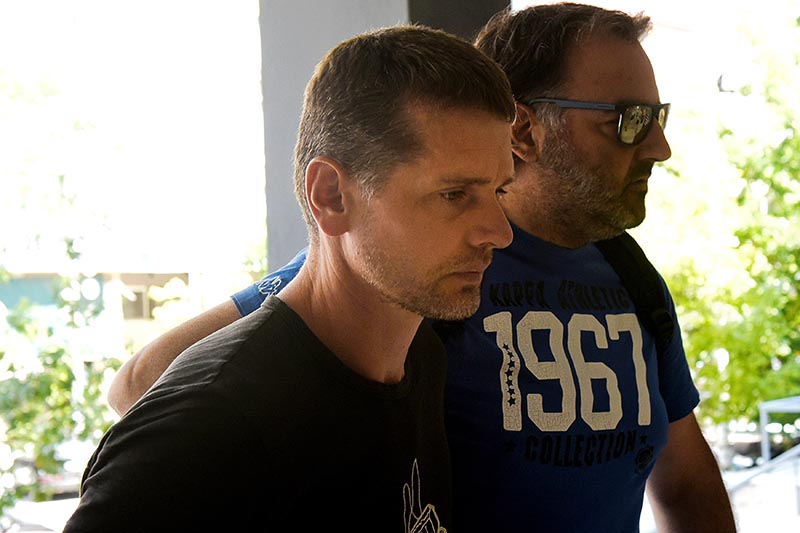US indicts suspected Russian "mastermind" of $4 bln bitcoin laundering scheme
NEW YORK/ATHENS/MOSCOW: A US jury indicted a Russian man on Wednesday as the operator of a digital currency exchange he allegedly used to launder more than $4 billion for people involved in crimes ranging from computer hacking to drug trafficking.
Alexander Vinnik was arrested in a small beachside village in northern Greece on Tuesday, according to local authorities, following an investigation led by the US Justice Department along with several other federal agencies and task forces.
US officials described Vinnik in a Justice Department statement as the operator of BTC-e, an exchange used to trade the digital currency bitcoin since 2011.
They alleged Vinnik and his firm "received" more than $4 billion in bitcoin and did substantial business in the United States without following appropriate protocols to protect against money laundering and other crimes.
US authorities also linked him to the failure of Mt Gox, a Japan-based bitcoin exchange that collapsed in 2014 after being hacked. Vinnik "obtained" funds from the hack of Mt. Gox and laundered them through BTC-e and Tradehill, another San Francisco-based exchange he owned, they said in the statement.
It was not possible to reach Vinnik for comment.
"Just as new computer technologies continue to change the way we engage each other and experience the world, so too will criminals subvert these new technologies to serve their own nefarious purposes," said Brian Stretch, US Attorney for the Northern District of California, where Vinnick was indicted in the statement.
Greek police described Vinnik as a "an internationally sought 'mastermind' of a crime organisation."
His arrest is the latest in a series of US operations against Russian cyber criminals in Europe. Last week, the US Justice Department moved to shut down the dark web marketplace AlphaBay .
The prosecutions also coincide with intensified scrutiny of Russian hackers after US intelligence officials determined that Russia interfered in the 2016 US presidential election using cyber warfare methods to help Donald Trump, something Moscow denies.
Bitcoin was the first digital currency to successfully use cryptography to keep transactions secure and pseudonymous, making conventional financial regulation difficult.
Over the years, law enforcement agencies around the world have been able to identify users behind pseudonymous wallets connected to illegal activities by tracking bitcoin movements, often with the help of crypto-currency experts.
While bitcoins can be bought and spent anonymously using digital wallets with unique addresses, transactions are recorded on a public ledger called blockchain, making it possible to follow the coins.
Mt. Gox was one of the most prominent examples of how the lightly regulated cybercurrency market could burn investors, after an estimated $450 million worth of bitcoin and $27 million in hard cash vanished when it collapsed.
During his time in the digital currency market, US authorities allege Vinnik faciliated crimes including hacking, fraud, identity theft, tax refund fraud, public corruption and drug trafficking.
BTC-e, which has been out of service for more than a day, attributed this to "unplanned maintenance." In a tweet on Wednesday after the arrest of Vinnik, BTC-e said it would restore service in the next 5-10 days.
The exchange is one of the oldest virtual currency platforms. It allows users to trade bitcoin pseudonymously against a variety of fiat and virtual currencies, and is known in crypto-currency markets as having relaxed standards for checking users' identity, and for not collaborating with law enforcement.
Until news of Vinnik's arrest, the identity of anyone behind it had been unknown.






